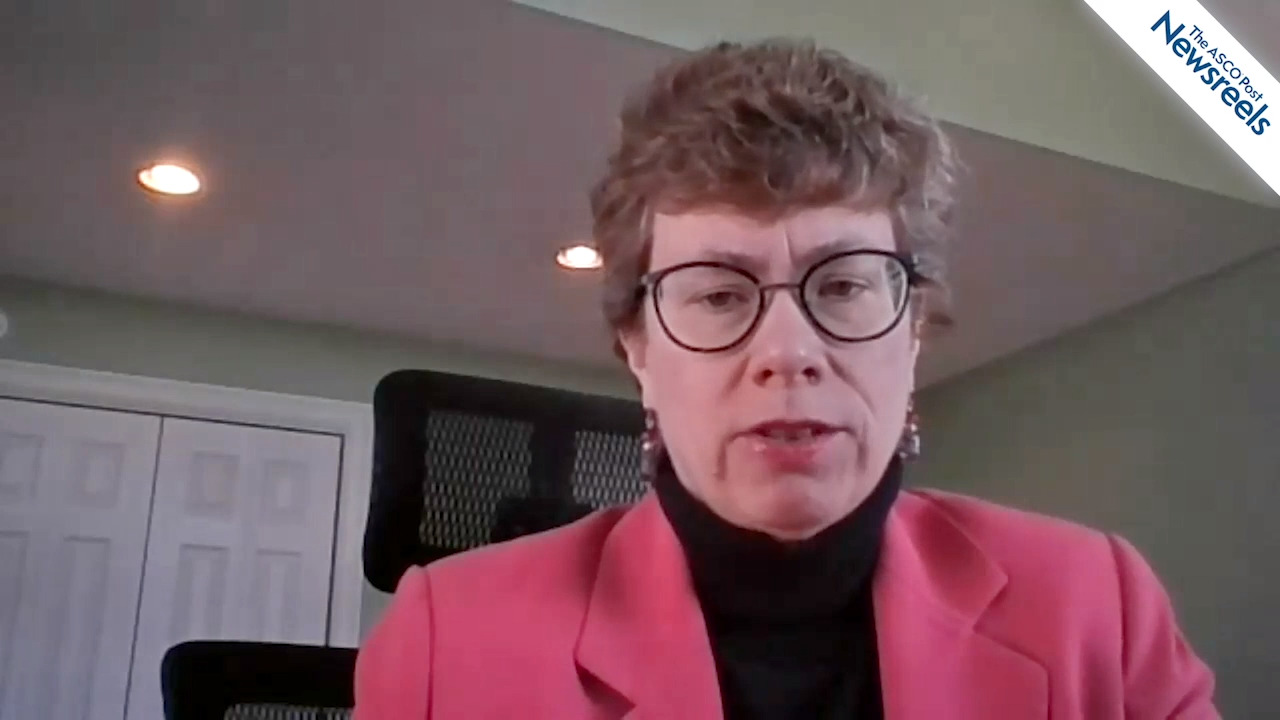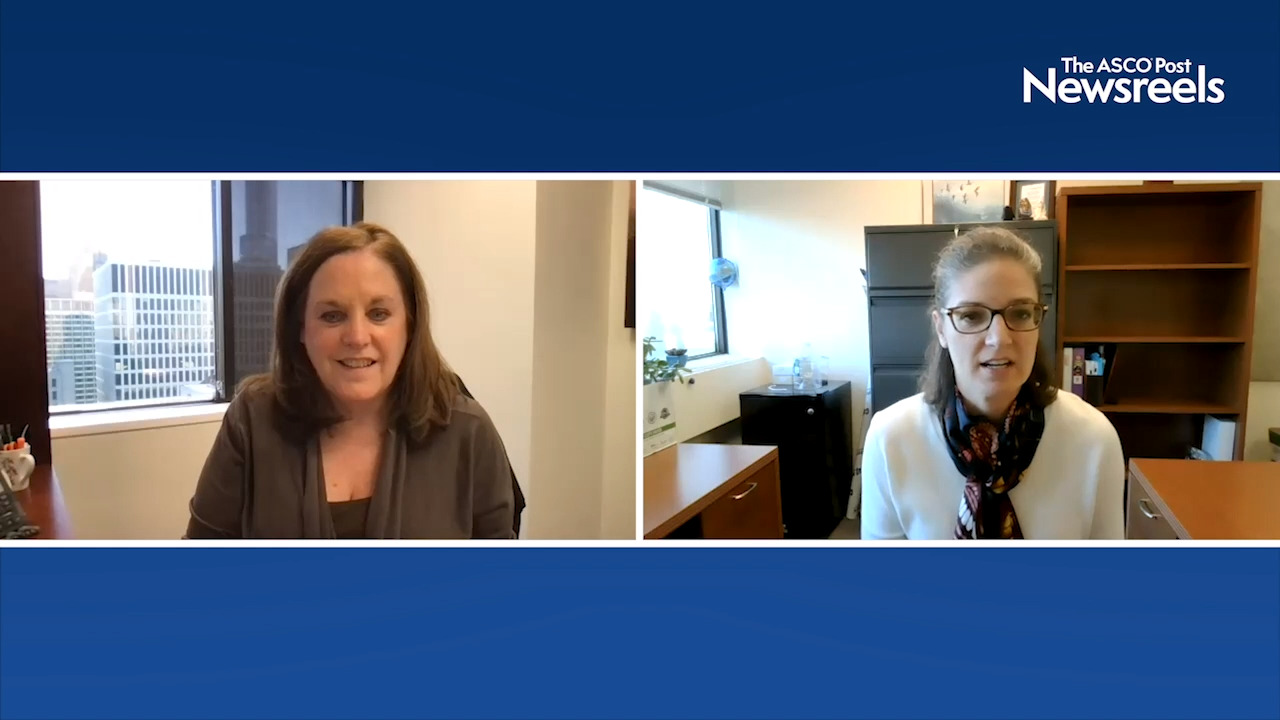April K. Salama, MD, on Managing Melanoma Brain Metastases
NCCN 2021 Virtual Annual Conference
April K. Salama, MD, of Duke Cancer Institute, discusses the shift in recent years, as more effective therapies have become available, toward integrating systemic upfront treatment of patients with brain metastases from cutaneous melanoma; pivotal studies that have provided key data; and the need for a multidisciplinary approach incorporating medical, surgical, and radiation oncology.
The ASCO Post Staff
Jennifer R. Brown, MD, PhD, of Dana-Farber Cancer Institute, discusses treatment choices for patients with relapsed or refractory CLL/SLL, when to stop therapy due to adverse events, BTK inhibitors and their second-generation counterparts, the need for ways to manage disease progression on novel drugs, and minimal residual disease as a predictor of response.
The ASCO Post Staff
Crystal S. Denlinger, MD, of Fox Chase Cancer Center, and Mary F. Mulcahy, MD, of the Robert H. Lurie Comprehensive Cancer Center of Northwestern University, discuss biomarkers for determining treatment; immune checkpoint inhibitors; when to employ such treatments as platinum/fluoropyrimidine and fam-trastuzumab deruxtecan-nxki; and other second- or later-line therapies such as paclitaxel, ramucirumab, irinotecan-based regimens, and trifluridine/tipiracil.
The ASCO Post Staff
Robert Winn, MD, of the Virginia Commonwealth University Massey Cancer Center, discusses the creation of a health equity report card to track how institutions are dealing with disparities in oncology care, ways to recognize bias in care, and adding health equity experts to guideline panels and other advisory groups.
The ASCO Post Staff
Gabrielle A. Zecha, PA-C, MHA, of Fred Hutchinson Cancer Research Center and Seattle Cancer Care Alliance, and Aaron Begue, MS, RN, NP-C, OCN, of Memorial Sloan Kettering Cancer Center, discuss how advanced practice providers are recruited and trained, ways to retain these valuable health-care professionals in the face of burnout, metrics to measure their productivity, and their future role in cancer care.
The ASCO Post Staff
Alexander E. Perl, MD, of the Abramson Cancer Center at the University of Pennsylvania, discusses the major changes in 2021 to the NCCN Clinical Practice Guidelines in Oncology for managing acute myeloid leukemia, including venetoclax plus azacitidine, a new standard of care in patients ineligible for intensive induction; oral azacitidine maintenance in fit patients unable to complete intensive consolidation chemotherapy or proceed to transplant; and an increased focus on minimal residual disease status post-induction.





